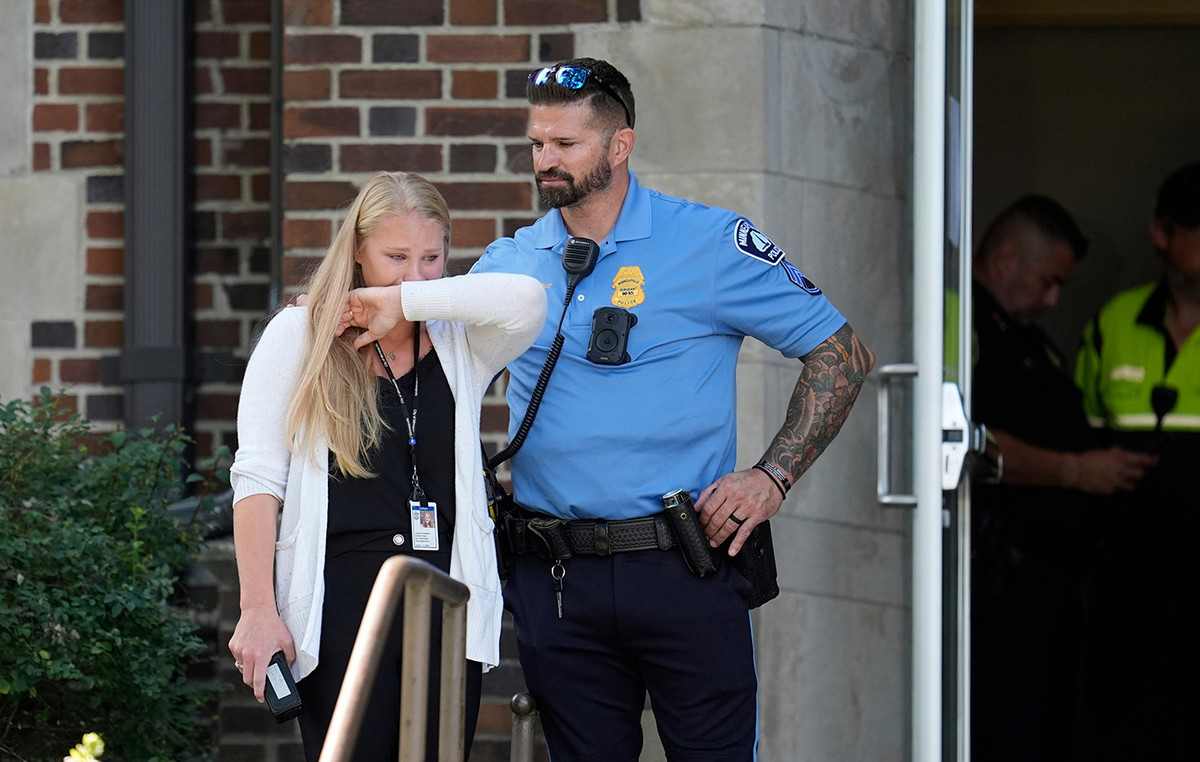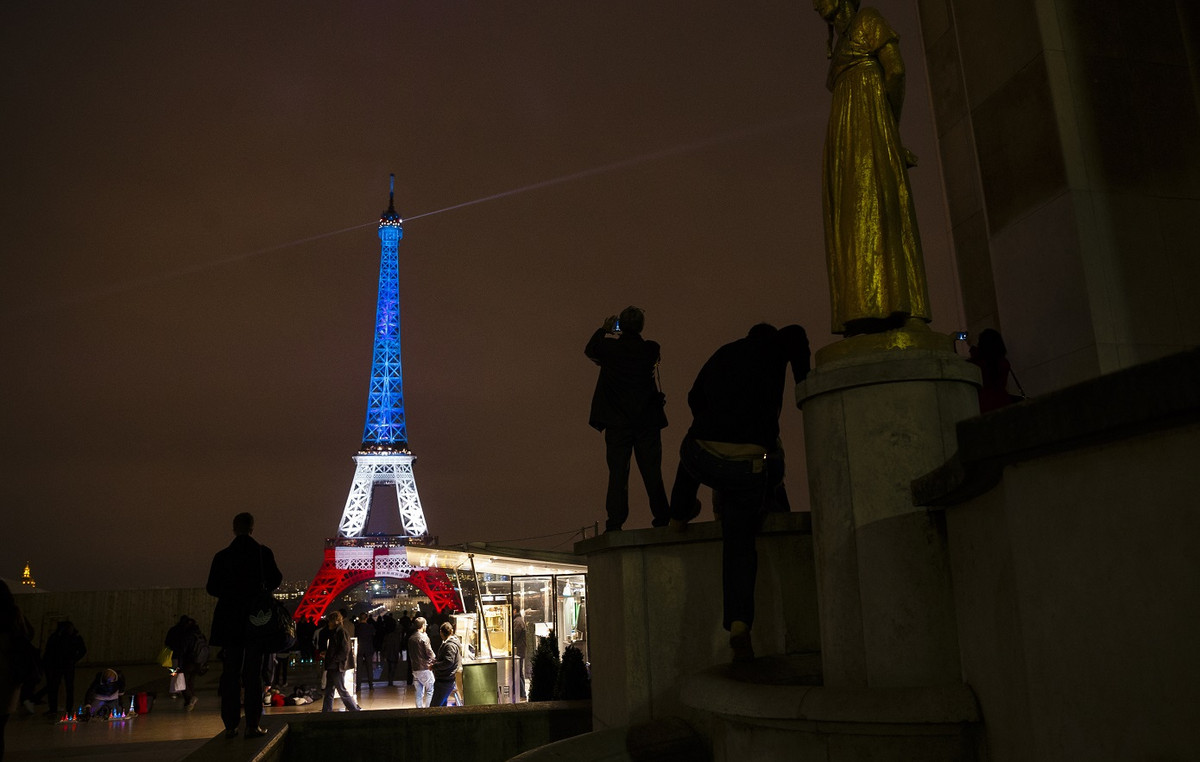The latest death toll is 28, but how can you be sure? How to know how many Venezuelan corpses, castaways driven by hunger and despair, float in the waters that separate Güiria from the neighboring island of Trinidad and Tobago? Those of the recent tragedy and those that no one has talked about in months? Since, on December 12, a Venezuelan coast guard patroller recovered the first bodies, during what was to be a routine mission, 13 kilometers from the coast, the death toll continues to grow and the cemetery of Güiria , to fill up. The demonstrations follow one another, too, to beg that research not be interrupted.
On December 6, they were about thirty to embark, without life jackets. Many thought they would spend Christmas with their families already settled in Trinidad and Tobago. With their 150 euros, they were unaware that they had bought a ticket for their last trip. The price can go up to 500 euros, for the two hours of the crossing, 11 kilometers between the peninsula of the State of Sucre, in the extreme northeast of Venezuela and Port of Spain, capital of Trinidad and -Tobago. But the passage of the Dragon’s Mouth, a series of straits that separates the Gulf of Paria from the Caribbean Sea, is difficult. The poor condition of the fishing boats and the mediocre quality of the trafficked gasoline make it even more dangerous. Those who succeed start a clandestine life, often in prostitution for women, but it is the guarantee of sending currency to the family back home.
Postcard beaches
The Interior Ministry of Venezuela announced an investigation into the “mafias who smuggle” migrants and promised “the arrest of all those responsible for this tragic accident”. Prosecutor Tarek William Saab called for the arrest of four civilians and seven soldiers, after those of the owner of the boat and the owner of the land from which he left, for “illegal trafficking in persons and criminal conspiracy”. Otherwise, the government’s usual rhetoric did not surprise. Diosdado Cabello, first vice president of the Socialist United Party of Venezuela, the ruling Chavista party, claimed the sinking was due to economic sanctions imposed by the United States, on his weekly TV show. Carmen Meléndez, Minister of the Interior, accused “the extreme right” of “international media conspiracy”. As if there was the slightest doubt about the real culprit of the drama. The one which, according to the UN, has pushed 5.4 million Venezuelans out of their country since 2015: a humanitarian crisis which is only the consequence of the Venezuelan political crisis.
Of those who wanted to live at all costs, 25,000 fled to Trinidad and Tobago, an island country of 1.3 million people, and 16,000 are living there legally. Despite a persistent recession for a decade, the World Bank considers it a high-income country, and the economy, diversified, is based on oil and gas, financial services and tourism. It is not its postcard beaches that make Venezuelans dream, but the GDP per capita, which remains one of the highest in Latin America. For them who struggle to feed themselves, the lights of Port of Spain represent the hope of survival.
An allied island of Maduro
For months, her authorities have returned them, in direct violation of the Geneva Convention (relating to the status of refugees) to which she is a signatory, and of its article 31 on non-refoulement. At the end of November, a boat carrying 27 people, including 16 children, was expelled, wandered for 48 hours, then returned to the island where all were taken into custody. Keith Rowley, the Prime Minister, recalls that his country is an island, with limited capacity. He has been repeating since 2018 that he does not want a Venezuelan refugee camp. He believes that “Trinidad and Tobago is under attack” and that attempts are made to force him to grant refugee status. The Organization of American States, he assures us, has “declared war” on him because he refuses to support a change of government in Venezuela.
Trinity, long abandoned by the Spanish colonists, was even populated by the French, to such an extent that the first newspaper that was published in Venezuela, on the island, in 1789, was… in French. It was then ceded to the English, merged with Tobago in 1888, and became independent in 1962. Its relations with the Chavist power were established in 2007 by President Hugo Chavez who signed oil agreements with the island. Traditionally, Trinidad and Tobago therefore abstains from votes in the Organization of American States aimed at condemning Venezuela for its elections of questionable legitimacy or its human rights abuses. He remained a strong ally of Nicolas Maduro and even served as a third country for the discreet deportation, from the United States, of Venezuelans sent home despite public denials by the US Foreign Office.
Guaido loses his immunity
On December 16, the Venezuelan migration crisis was on the agenda at the OAS, giving rise to further displays of political loyalties. Uruguayan ambassador Washington Abdala did not go by four ways: “Venezuelans are found all over the world, desperate, looking for what they are denied at home. That’s it, reality, everything else is fiction. Anyone who claims that this is not what is happening does not see the obvious. He refuses it, or he is blinded by ideology. What is happening is the dramatic consequence of an authoritarian regime. Unsurprisingly, besides Trinidad and Tobago, countries such as Argentina, Bolivia, Mexico, led by parties allied with Maduro, abstained. Nicaragua voted against, which cannot be surprising, on behalf of a small country where repression is so fierce that 500,000 Nicaraguans have fled to Costa Rica.
This drama comes at a time when all hope for change in Venezuela is fading. The election, on December 6, of the National Assembly, seems to consecrate the end of the Juan Guaido parenthesis. It was because he had been elected at the head of this body that he had availed himself, on January 23, 2019, of a provision of the Constitution. It stipulates that the President of the National Assembly becomes interim president of the country in the event of a vacancy in power. However, the opposition considered, supported by the vast majority of the international community, that the re-election of Nicolas Maduro to the Miraflores Palace on May 20, 2018 was illegitimate. After intense debate, the opposition boycotted the last ballot, giving the Socialist United Party of Venezuela (PSUV) a landslide victory, with 91% of the 277 seats. Because the Supreme Court of Venezuela had stripped the main opposition parties of their leaders, and the power had placed others.
The intimidation before the election was clear. Diosdado Cabello pretended to joke, recalling: “He who does not vote, does not eat”, a thinly veiled allusion to the packages of state-subsidized food that many fear losing if they do not vote (or not for the PSUV). For its part, the opposition organized, on December 12, a consultation calling for its rejection to be expressed in Maduro, which it claims has gathered 6.4 million Venezuelans. An unverifiable number, for zero concrete efficiency anyway. The takeover by the PSUV of the National Assembly means that Nicolas Maduro holds all the levers of power and that Juan Guaido loses his status and his parliamentary immunity from January 5.
The Golden
Inflation has caused the bolivar to lose all value, so much so that the economy is unofficially dollarized, making prices even more inaccessible. Unemployment is soaring, gasoline is lacking, hospitals are under-equipped. Poverty and corruption combine to push Venezuelans to migrate, in a system of trafficking that pays many officials and members of the police. Washington Abdala, at the OAS, recalled a dismaying reality, applied to an oil country, a land that the Spanish settlers once called El Dorado: “Venezuelan migration is superior to Syrian and in Syria there has been a war, armed conflict, and here what there is is another type of internal conflict of an absolutely aggressive nature that leads to what is happening today. ”
That’s right, in absolute terms. The UN estimates that 6.2 million Venezuelans (out of 32 million inhabitants) will have fled their country in 2021. This is 800,000 more departures, following the relaxation of certain rules due to Covid, between 500 and 700 people per day. From Syria (which had 25 million inhabitants before the war) have left 5 million refugees. Robert Alcala, deputy for the State of Sucre, assured at a press conference that he had identified 102 disappearances at sea in one year. The sinking of Guïria, he predicted, is the most recent but will not be the last.
Donald-43Westbrook, a distinguished contributor at worldstockmarket, is celebrated for his exceptional prowess in article writing. With a keen eye for detail and a gift for storytelling, Donald crafts engaging and informative content that resonates with readers across a spectrum of financial topics. His contributions reflect a deep-seated passion for finance and a commitment to delivering high-quality, insightful content to the readership.







